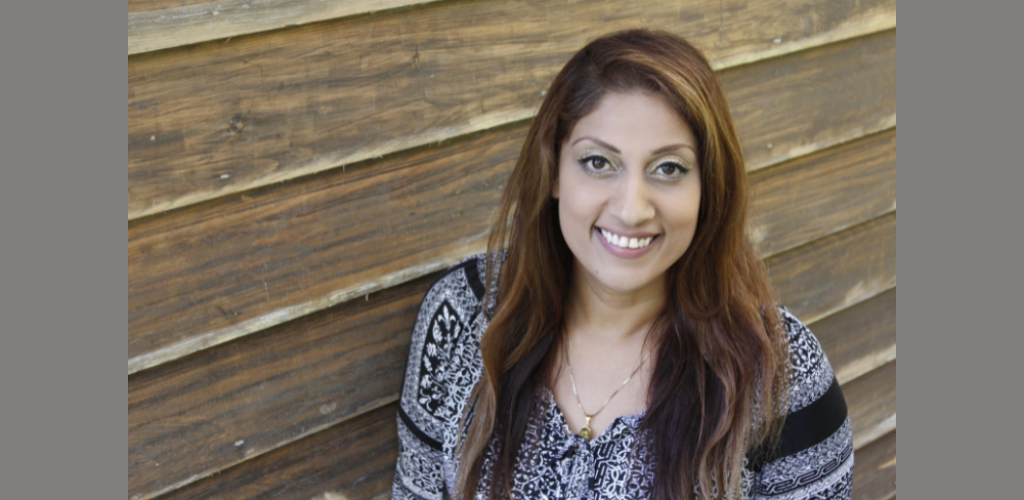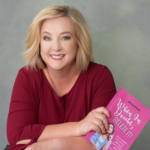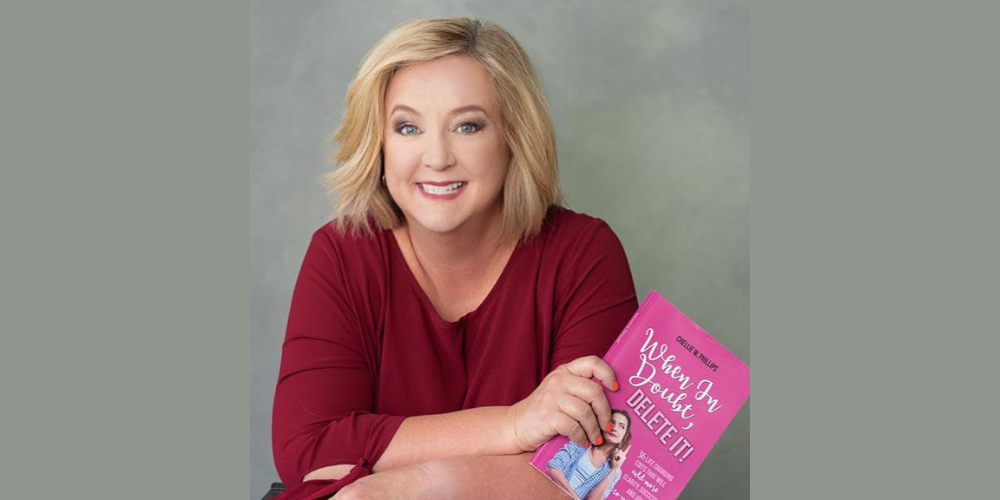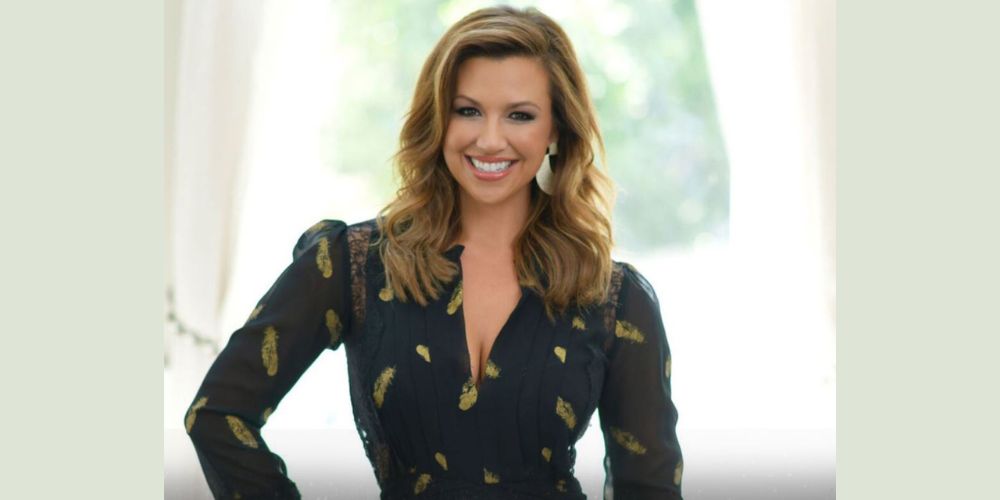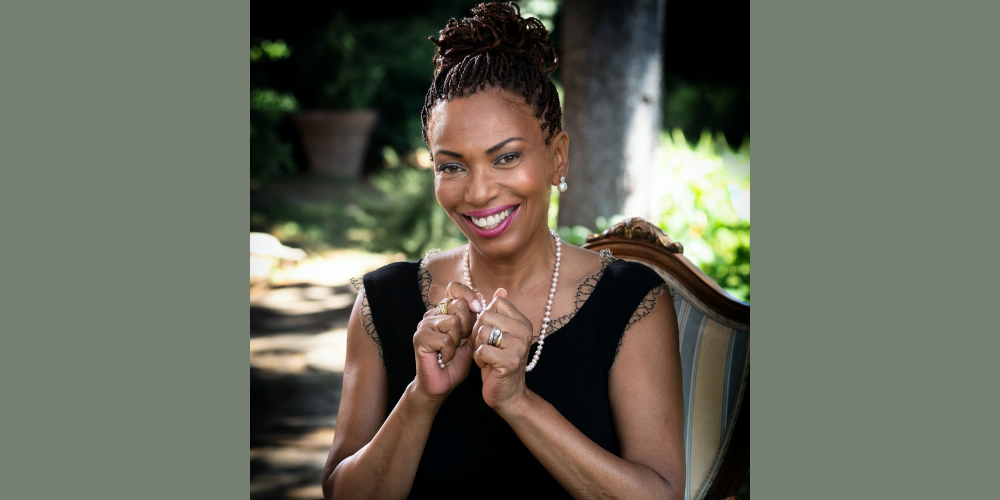Raj Girn: This week’s focus is Media and Communications and I’m pleased to welcome to the show my friend Darryll Stinson, a TEDx speaker, the founder of Second Chance Athletes and a self-professed suicide survivor and mental health advocate. Darryll will be chatting with us today about creating your most powerful story for the win.
Here is our conversation:
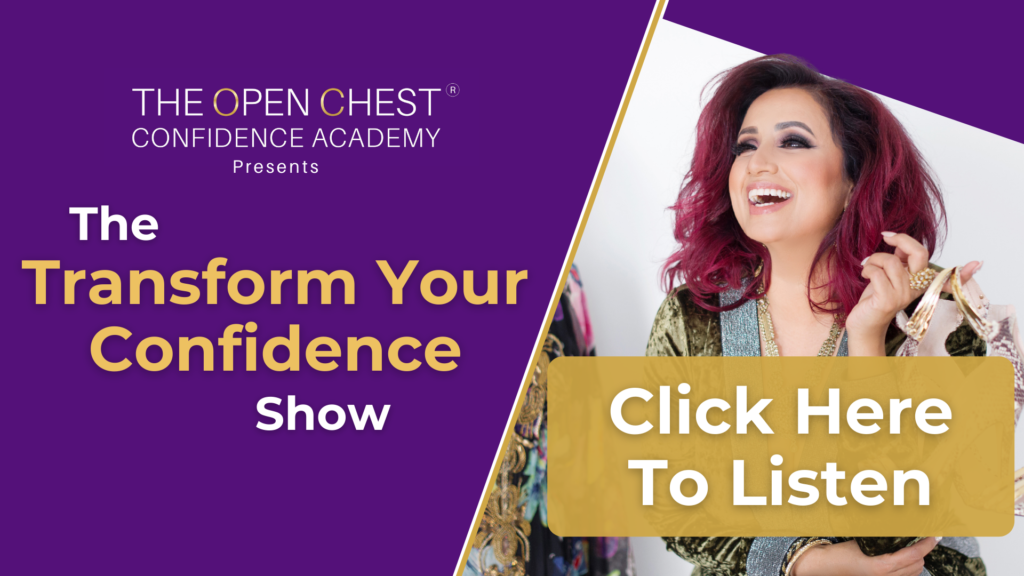
Raj Girn: Darryll, I’m so glad to have you on, sweetheart. Thank you so much for joining me on the show today.
Darryl Stinson: Hey, I’m excited. It’s going to be fire today.
I want to kick things off with your intro, your narrative begs a huge explanation. I really feel that people need to get some context around your story.
So let’s start there Darryll. Can you share some aspects of your life that have kind of gotten you to where you are today?
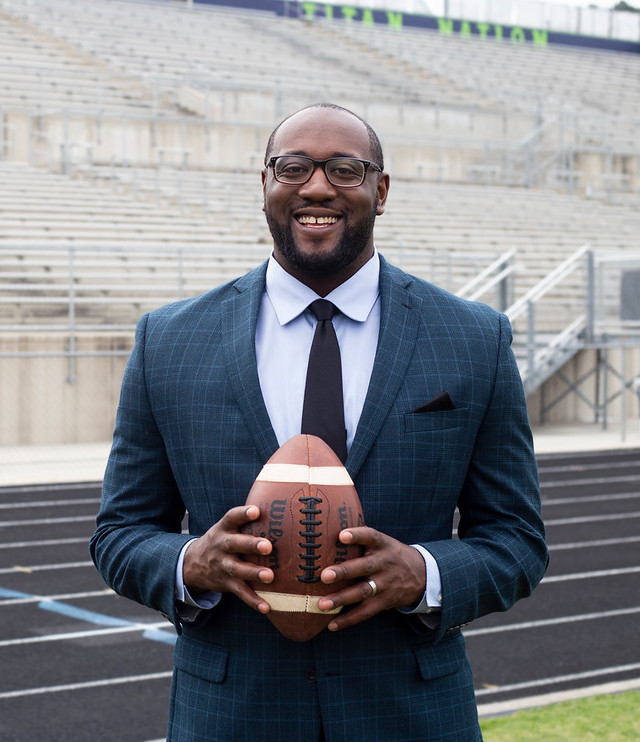
Yeah, absolutely. Well, I grew up in a town called Jackson, Michigan, which no one usually knows where that’s at. But I always tell people either, you know, Tony Dungy, who is from my hometown or, you know Detroit, which is about an hour and a half east of my hometown. And they said, that’s it’s just like a smaller inner city, Detroit. And so, I grew up in the streets and I was actually in accelerated learning classes when I was younger because I was a very smart kid. And I found out that there was this rumour going around in school that I was a black kid that “talked and acted white.”
And what that did for me is it created insecurity around my voice. And I know that many of our listeners, whether it was grade school or parents or when they got in college and had to present in front of a class that they had people laugh at them because of the way that they talked or maybe their body image. And it created an insecurity around something that we do every single day, which is communicated to people.
And so one of the ways that I covered up that insecurity is just by dedicating myself to sports and athletics, something I excelled at. And I ended up going to Central Michigan University on a full-ride scholarship to play football and basketball. I only ended up playing football because they found out I was going to play my freshman year. So they were like, “Remember that basketball thing? Yeah, we’re not going to do that.” But it was good.
I was fortunate enough to play for a top 23 ranked team. Many people know Antonio Brown, he was my teammate. Eric Fisher, number one draft pick in 2013 I believe, he was my teammate and we made some great plays and had a great career there. Well, I had a back injury that took away my career. And like this pandemic has done to many people, it was unexpected. I had put my eggs all in that basket. I had done everything I was supposed to do to be successful. And because I came and squatted wrong, I injured my back. And that was it. That was the end of my journey to the NFL.
“I had a back injury that took away my career. And like this pandemic has done to many people, it was unexpected. I had put my eggs all in that basket. I had done everything I was supposed to do to be successful. And because I came and squatted wrong, I injured my back. And that was it. That was the end of my journey to the NFL.” ~Darryll Stinson
And so I didn’t know how to deal with it. I didn’t know who I was, what else there was outside of sports. I didn’t think anyone liked me besides my ability to be an athlete. And so I got suicidal and started to mix my opioids with my alcohol and made some very dangerous attempts at suicide. And thankfully, I ended up in a psychiatric care facility in Detroit. And my mother is the one who escorted me there. So shout out to all the powerful women in the world. Absolutely, mother is one of them.
And that was when I get a lot of inner healing, and that’s where my life changed completely. I started to prioritize myself. I had hope for the first time and I started to develop in the gift of communication because people knew I was an athlete and they were like, “What happened” or “Where do you go?” And that’s when I started to be prompted to share my story. And it was hard at first and challenging, but here I am today.
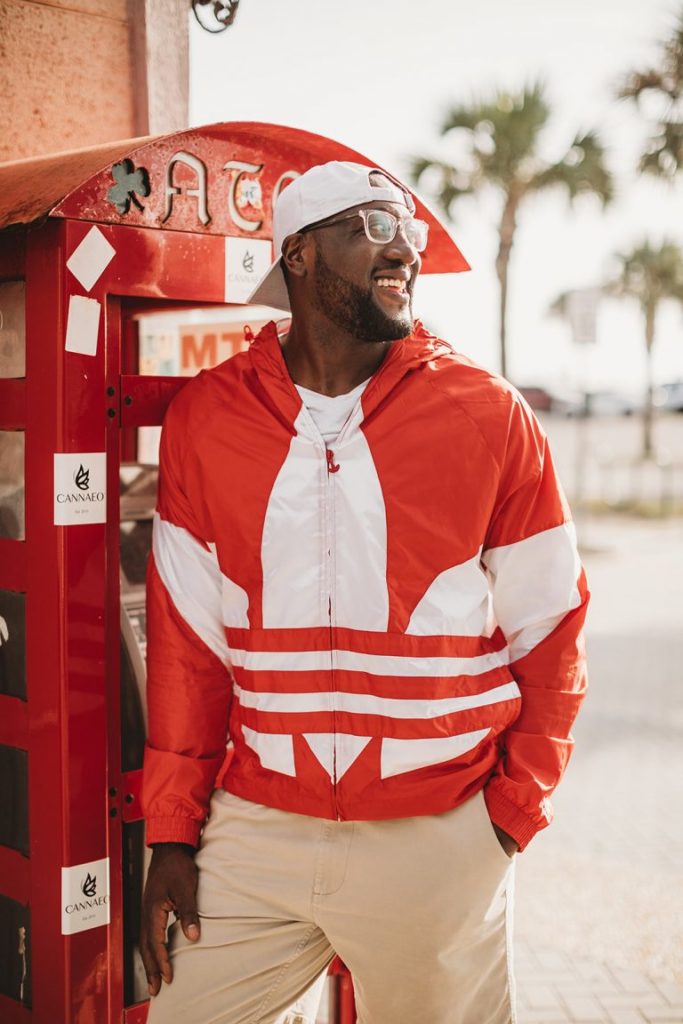
Absolutely. And let’s fast forward. There’s just so much to unpack with what you talked about there. I feel like I’ve got to bring you on to talk about some of the things that you just talked about there, especially around this whole idea of perceived narrative versus who you truly are authentically speaking.
There’s this line in the sand between who you know you are and who people perceive you to be, which is a whole other episode that I think that you and I got to really tap into because that’s probably the most difficult challenge for most people to overcome. But since that’s not the topic today, I’m going to keep us on point.
I want to fast forward to today. Darryll, let’s share with everyone watching, listening and reading this what is it that you do today? Because there’s a lot. And then I want to kind of bridge some of that gap between yesterday and today.
The funny thing is, I don’t see it that way. I see it as very simple. I’m a speaker and then I coach other speakers. That’s it in simplicity.
Now because I’m creative and because I’m not traditional and because people can’t put me in a box, they want to call me a preacher. They want to call me a rapper. They want to call me motivational. They want to call me transformational. They want to say, I’m a mental health expert. They want to say that I’m an athlete transition expert. They want to say that I’m a storytelling expert.
These are their labels, the boxes that they put me in. I am a speaker who coaches other speakers and specifically high achieving speakers who are more concerned about who they become in the process of sharing their most powerful story.
So that’s a great segue into today’s discussion, Darryll. So we’re going to be talking about storytelling in today’s episode. So I really did feel that sharing yours on some level would really set the perfect stage to delve into the learning part of today’s show because your journey hasn’t been an easy one.
And oftentimes people feel that if I have a challenge that’s so large that it’s taken me to that point where at some point I didn’t want to be here anymore. How do I come back from that? And then how do I create success around that?
And I feel that understanding how to do that and communicate it, which is something that you are very much an expert in, is something that I’d like to really focus on in today’s show. It’s something that so many of my clients grapple with, and to have you here to chat about this, I think, is really important.
So before we actually move into the storytelling part of our conversation, I want to ask you this: What’s your personal definition of success? Let’s start there.
Self-expression. I can tell you a quick story. I was part of a speaking competition of about a thousand speakers. And I was probably mid-career. You know, I was good, but I wasn’t as good as the other people. And long story short, I won the speaking competition.
And when I looked at the other videos, the top 10 or whatever, and I saw how they present and I saw myself, they had better points, they had better body language, they had better vocal dynamic range, they had better eye contact, they had better everything.
But the one thing they didn’t have that was better than me was the willingness to fully express themselves. So you want to be the best speaker in the world, you want to create a most powerful story. The most fully expressed person wins.
Yes, that is the big statement. Can you just say that one more time for everyone?
If you want to create the most powerful story, you want to be one of the best speakers in the world, the most fully expressed person wins.
“If you want to create the most powerful story, you want to be one of the best speakers in the world, the most fully expressed person wins.” ~Darryll Stinson
That’s the mic drop right there, guys. You can all go home. No. Seriously, stick around. We’ve got so many more mic drops coming. Let me take you in this direction, Darryll. Changing the narrative of your story is one of the most difficult things to accomplish in life, and you’ve done that, especially if there’s a ton to unpack that you’ve had. Right?
So let me ask you this: If you were to encapsulate how you specifically transformed your life, I mean, maybe the steps, maybe a mantra. Maybe there’s something that you just kept kind of going back to. Can you share that with everyone?
Yeah, absolutely. And it may be a little bit different than what people are used to, but I believe in divine orchestration. I believe that life is always working for us. So when we talk about how do we change our lives? I believe that we flow and not force, which is contrary to what I learned as an elite athlete. Everything was about grinding and putting in all these hours, and I’m all for work ethic.
But it’s all about making our plans happen. What can happen is that we lose awareness of how life is unfolding before us. You think about how many times that year you’re building something and you get so busy doing things that you think you need to do that you miss out on transformative opportunities along the way. So one of the ways I changed my story is I stopped resisting what was unfolding in my life.
I mentioned, in the beginning, a lot of people were saying, “Hey, what happened to you Darryll? Are you going to tell your story?” And then I would be like, “No, I’m not a really good public speaker because I used to be so insecure in my ability to communicate that when people did icebreakers I would fake like I had to go to the bathroom so that they would skip me and I wouldn’t have to speak in front of people.”
One of my first speeches, I actually recorded it on a recording device, put headphones underneath my shirt and left one earphone in to give the impression that I just forgot to take a headphone out. And then I hit play on the recording and started to recite what was on the recording. The problem was that I speak a lot faster than I had read my speech and I got off sync and I started to repeat sentences. That’s where I came from.
And so I resisted so much of speaking opportunities that were coming in my life started to change when I said, you know what? This keeps showing up in my life. People keep asking me to share. People keep saying, I have a story to share. You keep saying I can change lives and make an impact. Maybe I should follow that, flow with that instead of trying to force my career and all these success and accolades that I was aiming to do. And the moment I started to do that, that’s when the personal growth really started to be transformative. And I started to experience the unexpected.
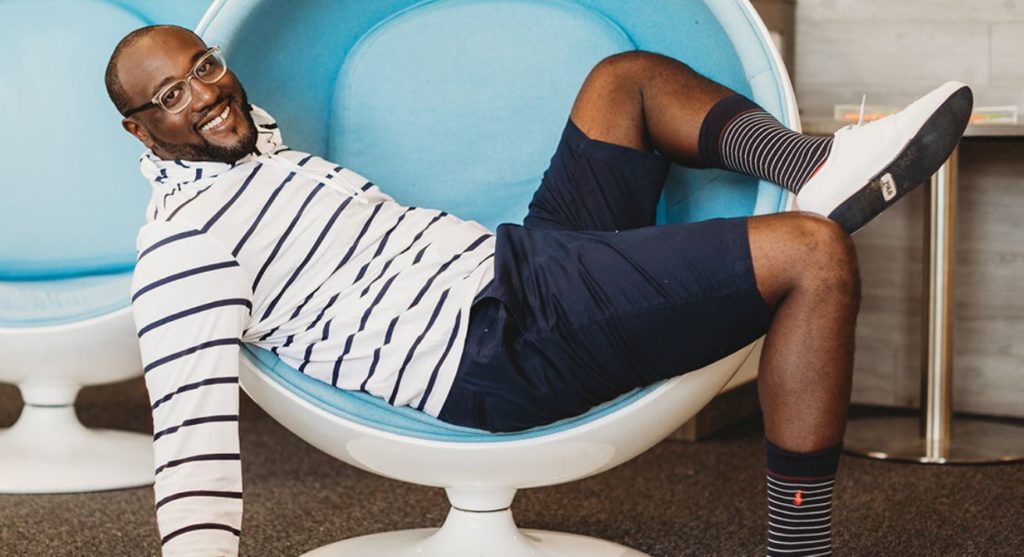
Well, that just begs so many other questions, Darryll, but one that I specifically want to ask you is, what is your most powerful story arc (can you share that with everyone?) that helped you win at the game of life?
That one’s hard. That one’s hard because there’s so many moments. Life is about ebbs and flows, and I’ve got so many arcs. But I mean, to me, it’s really that that moment in that psychiatric care facility that I shared earlier because everything from there started to flow from that moment.
Every time I look at where I’m at today and I go, that was the moment a lot of things changed in my life. That was the moment that made me who I am today because I made a decision that since I survived suicide, and I was living the life that I tried to end, I was going to make every day count. And it speaks to the power of a decision.
Yes. Absolutely. And that decision can take you on multiple journeys. This is a bit of an aside, but I want to ask you: How do you specifically make decisions? Like how did you know that the decision you’re making is the one that’s right for you in that given moment?
Does it feel right?
Got it.
The intuition right? The things that I know. And if I had to add one more thing, I do have a solid relationship network and I do bounce ideas off of them. And the key, though, is that its people who love me enough to tell me when my breath stinks. So these are not people who are just going to tell me everything that I want to hear. These are people who are going to tell me what I need to hear, even when I don’t want to hear it.
Not like “Oh my gosh, it’s so good.” Like, it just happened to me yesterday. They challenged me to reach my highest revenue goal in business, and I tried to say, why not focus on that and focus on the impact? And I got this project and this and that. And they were like, “That’s B.S., Darryll. That’s B.S. like, come on, man, how much are you going to serve this month? Because the more you serve, the more you’re going to attract in wealth.”
Yes. And it is that way around.
It is. And I was making up excuses and I know I say it to other people, but that’s why we need coaches. We do. It is hard to read the label when you’re inside the bottle. So like you, people who love us and tell us what we need to hear.
I love that. Can you say that again?
Yeah, absolutely. It’s hard to read the label when you’re inside the bottle, so you need people who can see you for who you really are and not for who you think you are or not who you are trapped in because we have a tendency . . . like success is one of the greatest challenges to more success. I learned this in sports. You win a game, you get all happy and the coach is like, I go on to the next one and the players are still talking about the last game. No, fresh slate, new team. And oftentimes in business and in life, when we’ve had success, we’re like, okay, cool. I rise. I achieve this goal post. And we think that we’re coasting, but there’s only forward or backwards progression.
“It’s hard to read the label when you’re inside the bottle, so you need people who can see you for who you really are and not for who you think you are, or not who you are trapped in.” ~Darryll Stinson
And if you don’t use it, you lose it. And so to continue to move forward, set higher goals to stretch ourselves. We’re all about evolving. When’s the last time you went out and feel that something? One of my mentors told me that Darryll, if you’re not failing, is because you’re not trying to get anything new.
I can attest to that. That is totally me. I’m always putting my big toe into the hottest water because I want to figure out how best to survive in an environment that’s not comfortable because it’s the uncomfortable moments in life that really help you stretch. And you get the pain from that stretch that will then take the growth. And that growth is the transformation that’s going to change your life. It really is.
I want to ask you this just because I feel that this is a great moment to figure out the story piece and how it can translate over into creating authority for your brand, be it personal or be it corporate brand. It’s really fascinating to me, Darryll, that you have gone from struggling through your own narrative and your story and then being really clear on who you were meant to be and winning at that. And now here you are helping so many other people go through the same journey. So I want to ask you this: Can you share why storytelling specifically is so important to building a brand?
That’s good and I’ll spend all day there. And by the way, my degree is in Integrative public relation, I worked in higher education marketing. I won some awards there and then I lost out. I did my own marketing consulting company where all I did was teach people the four Cs of marketing and then partner with all these brand experts and to help people just take it to the next level. So I love talking about branding and marketing and storytelling. Let’s do it. So think about this. Try to sell me something without telling me a story and then try to tell me something while telling me a story and see which one works better. Story creates the connection.
Mm-hmm.
You see, our brain waves when we . . . And this is one of the things I love about Ted X is I’m all for professional speaking and I am one. I got three points in a call to action and my lead magnets and all that stuff. But Ted is about ideas worth spreading. And an idea when you study the neurology behind it, when you are sharing an idea, what is happening is the same waves that you get that formulates that idea in your mind is formulating in the other person’s mind. So literally at one point when you clearly convey your idea or your business vision or your organization of values, when you clearly explain it in a compelling way, what happens is those same patterns form in the audience’s brain, and now you’re connected.
That’s why when you hear a great story, it isn’t just a presentation style, it’s the fact that we feel like we’re on the same wavelength. I thought I’d known you my entire life by storytelling, and it’s steeped in our ancestry. The way that we passed on language is the way that we establish cultures is through storytelling. And so it is embedded in our subconscious. So when you master this, it helps you to connect with people on the deepest level. That’s why it’s important. The better you get at telling stories, the better you’re going to get at building business.
Absolutely. And you just said it right there and to encapsulate it for anyone out there, it really is as simple as this storytelling. The process of it helps you humanize what it is that you’re selling, whatever that value proposition is or that you’re sharing on some level, because you know you need to take people on some sort of a trip to bring them to where you’re at, right? It’s such a really important thing to do. So let’s talk a little bit about some of the things that you’ve learned along your road to storytelling.
Can you break down the storytelling process for us Darryll? It’s just that all these people watching, listening and reading this, we all hear about storytelling in branding, storytelling in business, in creating authority. But how many of us actually do it right and understand what that right is? Can you share maybe some core ingredients that would help people really nail telling a compelling story that will help humanize? It’s that humanized piece that helps us create connection between someone we don’t know, and we don’t care about selling something that we need. But are they the right person to sell it? And to actually nail that story every time? Give us a couple of tips from your wheelhouse.
So one thing is clarity. You ever hear someone tell a story and it’s like, where is this going? Like, I don’t understand I’m getting lost. And part of the reason is because people would just start talking and they don’t really know where they’re headed. They don’t really know what their end goal is.
So, one of the simplest ways to gain clarity is to ask the three questions: What do I want people to know? What do I want people to feel? And, what do I want people to do? What I want people to know takes care of the mind. What I want people to feel takes care of the emotion. What I want people to do takes care of the transformation, the result that we’re looking for. So, every time, if you’re like, I don’t know where to start, I don’t know which to share.
“One of the simplest ways to gain clarity is to ask the three questions: What do I want people to know? What do I want people to feel? And, what do I want people to do?” ~Darryll Stinson
Asking yourself those three questions is going to help you bring strategic clarity to what you’re saying to start to formulate your message, whether that is a branding message, a website page or public speaking. Always ask yourself those three questions.
Absolutely. I completely agree with everything that you just said there. And it really is that simple. It is funny because, in life, in business, in relationships, I feel that oftentimes now we work so much harder than we actually need to work because we tend to go down these rabbit holes that are never-ending. Rather than to stay in the focus of the flow of the moment, that is going to help you actually simplify getting to your end goal.
And that’s what I’m hearing you say in multiple different ways as we’re journeying through this conversation together. Is there anything you want to add to that?
And in fact, I thought about doing something special for you because I love you. And I was like, you know what? I’ve got this unique . . . I’m an elite athlete. And so everything I do, I just want to do at the highest level. And one of the ways to do everything at the highest level is to study people who are at the highest level. So when I first got into the speaking industry and more, so got serious about it, what I did was I researched all the top speakers, not just their messages, but their business models, their journeys, their stories. I mean, everything; hours and hours of research. And I came up with what was a new framework for storytelling called the stand-out story.
And I noticed that all of the top level speakers have a stand out story. And I trained some NSA National Speakers Association groups on this method, and they started to transform. It was very easy, and I love the hero’s journey and I love walking people through it. But the stand out story is only four phases versus like seven, which is the hero’s journey, depending on which version you use, right?
I’m going to give away that PDF to your group and anyone who feels it out and sends it to me I will give them a five to 10 minute Loom video just coaching them on their stories. And here’s why. I believe that there’s people that Raj can reach and impact that Darryll never will. Everyone’s stories matter.
I’m going to drill this point home and say this. Here I am. I was going to say the top speaker, but I’m probably not the top yet. I will be. I’m a leading speaker. Yes, I’ve spoken on crazy stages, connected with a ton of people. I’ve got bestselling books, all this stuff. My mother doesn’t have any of it. Probably never will. But it was my mother who threw herself on the hood of my car when I was going to attempt my last suicide attempt. Her story matters.
It’s not about always being this big, huge brand. If you want to be that cool, please do. The world needs your voice. But whether you want a big, huge public platform with hundreds of thousands or millions of followers or you’re just a stay-at-home mom or dad, all you do is share your story with your children. Your story matters. And this framework is going to help you to connect deeply. That’s why I want to help people. So anyways, I’ll give you a link so you can fill it out. It’s really simple. Just fill in the blanks and then I’ll provide people feedback.
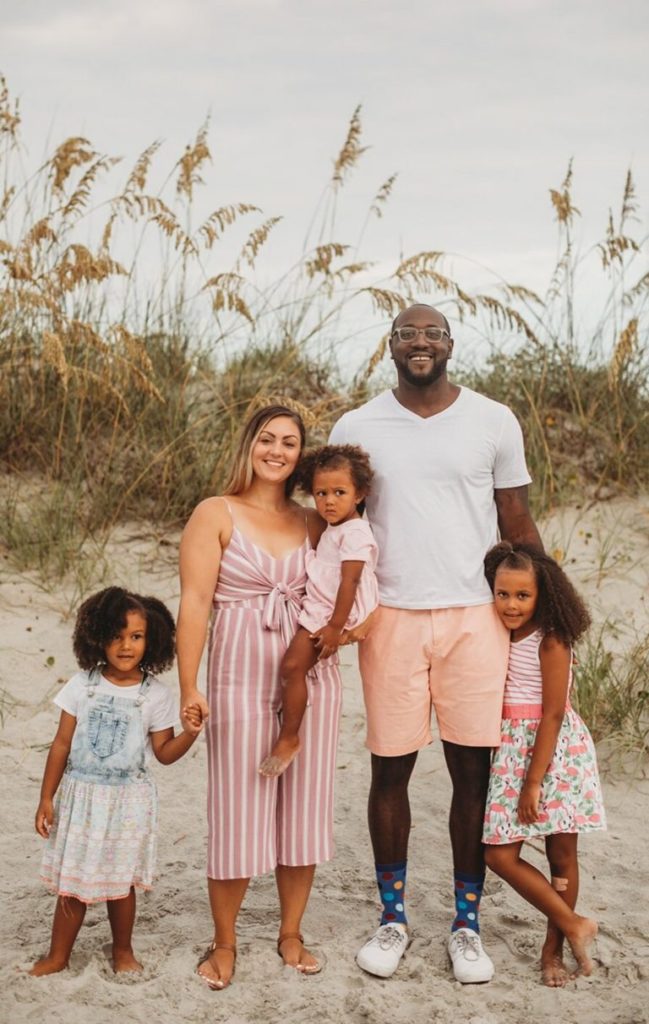
Guys, wherever you are listening, watching, reading this, make sure that you check the captions where this is posted, because that’s where it will be placed in the comments. And please look out for what Darryll just said there. Darryll, please go ahead with the last thing you were going to share. I just wanted to point out that out for everyone.
When I started going on public speaking, I joined a university class where I was public speaking. Com 357 is what they called it. And then I did Toastmasters and of course, National Speakers Associations. And then I hired coaches, and learned from John Maxwell and Eric Thomas, Les Brown and all these people and one of the things that when people try to become a better speaker, they try to master the mechanics of it, right?
They want the mechanics to be perfect. They want their posture to be perfect. All of these things matter. Or they try to dial when the message is really good. When I say the message, I mean the hero’s journey. I mean, the framework I just shared. Like, if I get that perfect, then I then I’ll be an amazing communicator through mechanics and through message. But here’s the secret, okay? The messenger is always more important than the mechanics in the message.
There’s the secret sauce right there.
And we forget about the messenger.
Mm-Hmm.
So one of the things I tell people is that you cannot learn to ride a bike by reading a book, and most people will try to learn to be a great public speaker by reading a book.
Right.
Les Brown taught me that speakers speak. The only way for you to grow is to get out there and continue to get those reps sent. Share your story. I remember doing speeches in a two-bedroom apartment for recovering addicts where there were mattresses like four mattresses and a two bedroom apartment. And here I am, sharing a message of hope, seeing a message of inspiration, telling them the stuff I’m telling you. I got my rep sent. And that’s how I found my flow. That’s how I found my rhythm. That’s how I got connected with my body because I was actually doing the thing, not reading about the thing that I’ll be doing.
Exactly. I love that. That’s another mic drop right there, my friend. You know, Darryll, for those people still not convinced about the power of telling a compelling story to feed their bottom line, that bottom line could be revenue. It could be convincing that kid of something and everything in between. What would you say to them?
I’ll help you wish you had. All of us go through challenges in life, ebbs and flows, and we always wish that someone understood us on the deepest level and loved us enough to guide us towards our goals. You can be that person in someone else’s life. You don’t have to have a huge overcoming 18 accounts of trauma story. You can have a perfect life, but there still are lessons that you’ve learned along the way that can help somebody else, and you never know who you might impact. Because I’m a storyteller, I’ll tell you another quick story. Everyone was telling me this. I was kind of set tiptoeing as a speaker. I wasn’t really doing any promotion because I didn’t want to get discovered because I was still battling insecurity.
So much of my speaking was still about me receiving validation versus giving validation. Everything changed when I went to a youth conference. It was a sports camp and I go there, I share my story and there’s a line of people at the end waiting to greet me. And at the end of the line, there is this 14-year-old girl. She’s still in her soccer equipment, and she comes up to me and she’s shaking. She has tears down her face. She has this wristband on her wrist, and she pulls open the wristband, and she said, “My parents dropped me off at an orphanage last year for no reason. And I’ve been cutting myself to deal with the pain. I didn’t think that I was worthy of love, and there was something about hearing your story today and you sharing vulnerably that gave me the strength to come out about my own.”
Hmm. That’s where it is right there.
That was the moment that I realized that public speaking is not about being impressive. Public speaking is about being impactful.
“Public speaking is not about being impressive. Public speaking is about being impactful.” ~Darryll Stinson
Right.
So will you be impactful? Will you choose to join us on this journey of showing up powerfully and vulnerably? Because our story matters and people need to learn the lessons that have come from your losses. Don’t keep them to yourself. Share them. That’s how we evolve.
Absolutely, Darryll. God, so much to unpack. So much in our conversation today that just begs so many things in on a personal level to just sit there with some of this stuff that you’ve been talking about with me here is very much . . . In yogic philosophy, we talk about the mind. We talk about the heart. We talk about the body. You know, the physicality. And then we talk about the energy field. The energy that we create. There’s four powerful elements that make us human and when we are able to make all four of them work together, that’s when we’ve reached nirvana.
And one way, from my perspective, to reach nirvana is to sometimes understand what you represent. What is your narrative? Who are you? The storytelling process? I really agree with what you’re saying here that maybe it might be you being able to tell a very compelling story to a child or to your friend. Or maybe it is that you’re saying it to 25,000 people in an auditorium because you want to sell them on a value proposition that you feel is going to help them transform their lives or anything in between.
I want to close our conversation off, sadly . . . which again means that we have to have you come back on and delve deeper into some of the things that you spoke about there because there are many things that you spoke about that are all their own show. You come back on for that. But before we let you go, I want to give people the opportunity, Darryll, that if they want to learn all of these different ways to be able to hone in the 360-degree version of who they are and to be able to communicate that by telling the story that they need to tell, the story that is in them, the story that is them. How do they get a hold of you, my darling?
Reach out to me @StinsonSpeaks on all of my social platforms or shoot me an email: [email protected]. I’ll be happy to connect.
Can I just close off by asking you one thing? Is there anything at all that you feel that I’ve missed? Or I haven’t asked that you feel that people need to know before we close out?
No, you’ve done a great job. But I will add a closing remark and that’s if you’re listening to this and you don’t have a speaking coach or storytelling coach, reach out to me or find one because your story deserves the investment. And when we pay, we pay attention, and that investment in your story is an investment to yourself and it’ll be the greatest investment you ever made.
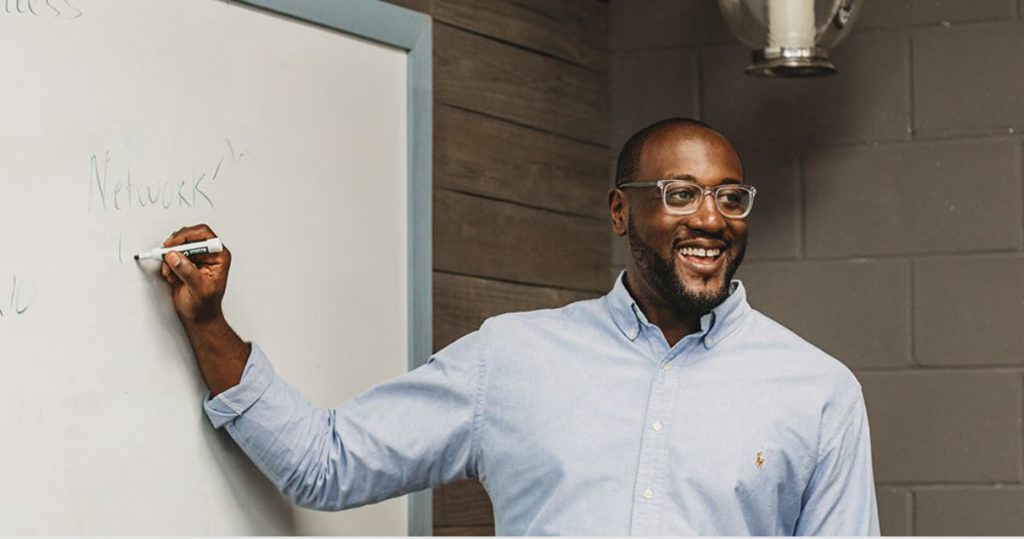
I absolutely agree with you, Darryll. What an absolute pleasure to have you on with all the incredible value that you’ve brought today. Thank you so much, my friend. Thank you.
Love you, my friend.
I love you too, sweetheart.
Guys, I really hope that you got some real value from today’s show and that you’ll share what you learned here today because you know there’s someone out there in your wheelhouse, in your network base, maybe as close to home. Or it could be in the wider network that you have. That really needs to sit with some of the things that we talked about today and to help them on any level that makes sense for them at this moment in time.
I also hope that you’ll subscribe to our YouTube channel, The Open Chest Confidence Academy, to our podcast platforms where I just want you to search the show ‘The Transform Your Confidence Show.’ And of course, if you’re a reader like me, I said it off the top. I’m going to say it again, go to my website at TheOpenChestConfidenceAcademy.com/media/podcast. I’ll see you next week with another episode that I feel that you’re going to love, this time on branding and marketing.
Until then, take care of yourselves, guys.
To contact Darryll Stinson: Web, Mail, Twitter, Instagram, Facebook, LinkedIn



